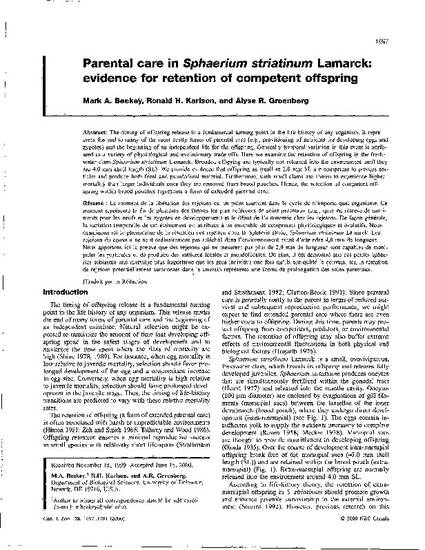
The timing of offspring release is a fundamental turning point in the life history of any organism. It represents the end to many of the most costly forms of parental care (e.g., provisioning of nutrients for developing eggs and zygotes) and the beginning of an independent life for the offspring. Generally temporal variation in this event is attributed to a variety of physiological and evolutionary trade-offs. Here we examine the retention of offspring in the freshwater clam Sphaerium striatinum Lamarck. Brooded offspring are typically not released into the environment until they are 4.0 mm shell length (SL). We provide evidence that offspring as small as 2.0 mm SL are competent to process particles and produce both fecal and pseudofecal material. Furthermore, such small clams are shown to experience higher mortality than larger individuals once they are removed from brood pouches. Hence, the retention of competent offspring within brood pouches represents a form of extended parental care.
